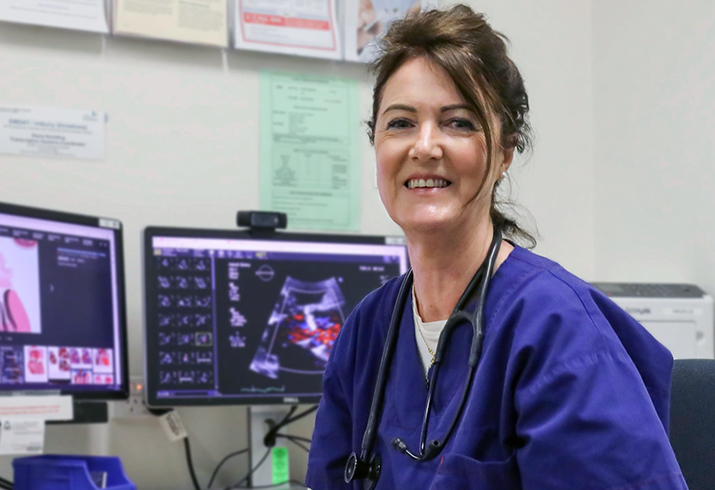Less invasive procedures for patients with heart valve disease saves lives
 Fiona Stanley Hospital Valve Implementation Program Coordinator Jen Turner
Fiona Stanley Hospital Valve Implementation Program Coordinator Jen Turner
Offering less invasive procedures for some of the most unwell patients with heart valve disease, Fiona Stanley Hospital (FSH) is improving and saving lives with mitral and tricuspid valve transcatheter implantation.
In addition to transcatheter aortic valve implantations (TAVI) offered at FSH since 2015, the mitral and tricuspid transcatheter implantations are less invasive and offered to patients who are too unwell for other procedures.
Valve Implementation Program Coordinator Jen Turner ensures patients requiring heart valve interventions have access to the specialist heart valve clinic and multidisciplinary team.
“Many of the patients we see here are so unwell that they are unsuitable for more invasive procedures,” Jen said.
“The transcatheter interventions offer a safer, less invasive way to extend and improve the lives of these patients.”
With more than half a million Australians suffering from heart valve disease (HVD) and over 250,000 people unaware they are living with the condition, the disease involves heart valves not opening or closing properly, leading to problems with blood flow, heart failure or stroke.
Jen said early detection and prevention of heart valve disease is key.
“It is really important that people at risk of HVD, including those aged 65 and older, and anyone experiencing symptoms, speak with their GP about a heart check.”
Heart Valve Disease Awareness Week (external site) (17 to 23 February 2025) aims to increase awareness about HVD risks, symptoms, diagnosis and prevention.
Keep up to date with our news and achievements
Find out more on Facebook (external site) or LinkedIn (external site)

